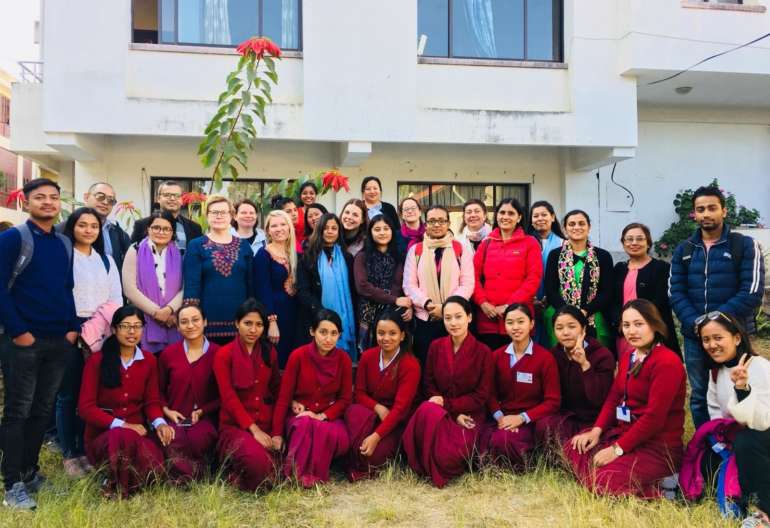Multi-professional cooperation: sharing knowledge and respect

I participated in the Communication and Interaction Competencies intensive course in Kathmandu. Here are some of my thoughts about this course.
A new education practice: Simulation
This course introduced the students to a new education practice, simulation. In Nepal, education practice focuses more on theoretical than practical knowledge. In the simulation, our previously learned theoretical knowledge had to be used in practice. This helped the students gain a clear vision of the knowledge discussed in theoretical teaching. Through simulation, the students could encounter situations they might face in their profession and deal with them by applying the knowledge they learned during their classes.
The nursing, microbiology, and social work students got to experience situations that might arise during their practice and deal with them efficiently. The simulation provided us an opportunity to apply various theories and principles in practice. The practice therefore helped the students to become aware of something new and beneficial for proficient education practice.
Simulation in a multi-professional setting
Another important lesson from this course was that the students learned about multi-professional cooperation. Students from fields like social work, microbiology, and nursing were under the same roof, and the relations between these fields were discussed.
The microbiology and nursing students attempted to deal with a given simulation situation from the perspective of its medical aspects, whereas the social work students focused on the social context. When many professions work together, it helps to gather better knowledge and assists in creating an environment in which all the professions are treated equally and respected in the community. This concept of multi-professionalism is essential, because it helps to bridge the gap between different professions and helps create a better society.
Working with the Deaf community
The simulation helped the students to understand the importance of communication and that everyone can communicate using different methods. Even if a person is deaf, she/he can communicate and express feelings and ideas.
The course taught us sign language and ways to deal with people with a hearing disability. Health and social work professionals often have to deal with patients with a hearing disability. Due to the lack of knowledge about sign language and other communication tools, these professionals have been unable to deal with them properly. Communication tools like ISBAR used in the health profession could also be used in the social work profession. These tools could help both professions deal with their clients more effectively.
Respectful interaction
The course also gave the students the opportunity to interact with many people from different parts of the world. They became aware of the education practices practised in different parts of the world. Students also learned about the similarities and differences seen in many countries from many aspects.
The course also helped students to become aware of different professions like nursing, microbiology, and social work. As a social work student, I knew little about microbiology and nursing. The activities performed by the microbiologist, their course of study, and their work as a health professional were all things of which I was previously unaware. Likewise, the microbiology and nursing students were unaware of social work. This course thus not only helped us become aware of the various communication tools but helped us to learn more about each other’s professions.
Forming friendships and creating job opportunities
During the simulation, different professionals had to work together. By performing the simulation, a bond was created between the participants. I had a very good bond with the students from nursing and microbiology. Although the microbiology students are from St Xavier’s college, we had never had an opportunity to meet and get to know each other. With the help of this course and by performing the simulation together, we had an opportunity to interact. During the simulation drama rehearsal, all the students shared their opinions and the drama was prepared collaboratively, along with precious friendships.
Through the concept of multi-professional cooperation, all the participating professions could receive equal respect. This could even help in the creation of more job opportunities, because there would be a demand for many professions to deal with difficult situations, and ultimately, more people would be employed.
On the last day, certificates were distributed to the participants as a mark of appreciation, and photos were taken.
Text: Anuska Gorkhali, Kathmandu, Nepal
Picture: A group picture in the multi-professional, multicultural intensive course.
